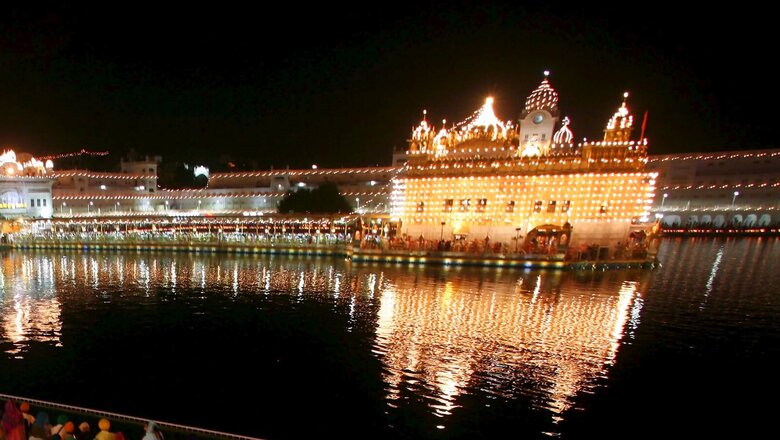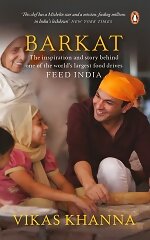
views
I was born during the India–Pakistan war in 1971. In Amritsar, you always had this constant rebirth of the city, because it is right on the border of India and Pakistan. But when I was growing up, we also had a strange unrest that was internal and as kids we never understood it fully. It was with regard to the 1984 riots.
It was called Operation Blue Star but before that, there was this kind of turmoil, which was very strange for us kids who were growing up and who loved the city so much!
There was so much closeness between me, growing up in a Hindu family, and most of my friends, who were Sikhs. And suddenly we were being told that there’s a war going on and we did not understand that. It was very unsettling.
I had anxiety issues whenever I heard the news or experienced the curfew and saw the military. I was almost thirteen years old then.
We had two family friends, whom we used to call Shriman Shrimati Ji, and they were my grandparents’ best friends. The period after Operation Blue Star ended was a dark part of the history of Amritsar at that time, because the military had entered the Golden Temple and they had destroyed so many parts of it. This was the first time the temple had opened to the public and they wanted people to come and do seva such as cleaning the premises.
I asked my mother, ‘Can we go?’ as I wanted to go and contribute.
She said, ‘Why don’t you go with Shriman Shrimati Ji because they are going?’
It was a painful moment for us when we went to the temple. Shrimati Ji was quite elderly, I think she was older than my grandmom. Everything was still not very clean and there were a lot of broken things lying around. Most of the time I was just holding on to her while looking around. I still remember the bullets in the walls. I don’t want to think about that smell and the pain in the city, which was being torn apart. But we were still hopeful.
I remember as we entered from the main gate and were walking towards the temple, I told Shriman Shrimati Ji, ‘Can we go to the langar hall?’
When we went there, we saw that tea was being served outside. I asked people what was happening, and were they serving the prasad inside? I was told that they were going to start serving from the next day. This was the first time I had entered god’s home in a long time and the first time I had been told that there was no food there. That has always been something which has hurt me because you always saw those fires burning in all their glory, twenty-four hours a day, serving people. But that was a tough day for me; it scarred my childhood.
I found it hard to accept that there was no food that day and this was the first time that seva was discontinued in history!
A place that gave shelter and food to millions each and every day was today passing through a dark phase of its life. But what it symbolized was hope that everything would come back as before. I remember sitting with Shriman Shrimati Ji on a ledge and we had chai. They did not understand my grief because they had not seen me growing up there and they didn’t understand why I was being so affected. They kept telling me, ‘Don’t worry, this is the place of the gurus. It has so many prayers and blessings that it will always come back stronger.’ That has also stayed with me—whatever you’re going through, if you’re going to have resilience and faith, you will always come back stronger. You could be going through the darkest phase of your life, but if you have faith, you are going to overcome that.
Right before Operation Blue Star, we had all rented a bus and gone to Srinagar for my cousin Anju didi’s wedding. This was one of the best times that the family had together.
All my relatives from Delhi, Bombay, everywhere, had come together. Our bus took almost eighteen hours to reach Srinagar and I think that was because all the women stopped the bus at every place they found beautiful!
This was also the time before everyone had the luxury of personal cameras. In fact, no one had a camera on the bus. So, all we could do was stand and soak in the scenery because every corner, every turn was a paradise, as we were getting closer to Kashmir. It was also the cherry season and I’ll never forget the sight of all that fruit. There is one more thing I remember the moment I think about Kashmir. It is, of course, a paradise with the landscape that makes us feel as if we’re walking into a painting of heaven. However, for me, it’s also the Wazwan, the coordination of the people pounding the meats, the ornate utensils and the beautiful set-up of the food. I had never seen a feast like that, with that kind of finish. I was so intrigued by it!
I remember the wedding was at the Oberoi Hotel overlooking the Dal Lake. I was only interested in visiting this wazwan kitchen but I didn’t know I was not allowed to go inside. I had not even seen a big five-star hotel with that kind of kitchen and I was curious about what was going on in there.
ALSO READ| 500 Staff, 50000 Sq Ft Dining Halls, 1 Lakh Footfall: The Story behind Famous Langar at Golden Temple
When we came back from the wedding, Operation Blue Star happened. The city of Amritsar, and life as it was, came to a standstill.
Suddenly, we were disconnected from all the news. I remember we had to cover up all our windows, and put dark cloths and paper on them. However, we still had some relatives with us who were supposed to go back to Delhi or Bombay or the other cities where they had come from. So, as we had come back together, they were all staying at our place and that’s when the curfew started.
These were very dark times because many people did not have the provision of having so much food stored. We realized that everyone was going to be in massive trouble because of the shortage. I will never forget the time when I saw my grandmother look at the rations. She just had dry pulses, rice, flour and potatoes; that was all that was in the storage. Every time she gave me potato curry, I said I wasn’t going to eat it. I was becoming a teenage brat.
She asked, ‘Why?’
I said, ‘I had this yesterday and the day before yesterday and the day before that. I’m not going to eat this.’
I remember she ran her hand through my hair, touched my forehead and said this was ‘aloo curry’ and that was ‘curry aloo’, hence this was different. ‘I’ve made a new dish out of it!’ It was exactly the same. I think that was when I realized that she could have shouted at me, even slapped me because we were going through such a dark phase without food and just about surviving. She could have said, ‘You brat, you better behave yourself. This is all I have.’
And she was not eating, we all knew that. The family was eating but she did not, because she said that feeding the family was a duty she had to manage. If she had taken on the duty, she had to fulfil it. She said it did not matter whether the family kitchen was run by a woman or a man, they have to take on the responsibility when they run it and it’s everyone’s job to support her. And that is why, I can swear by it, I’ve never ever let anyone touch the plate in which I’ve eaten. I could be in a restaurant, anywhere, banquets or at home, colleges, offices … I need to carry my plate to the kitchen sink and clean it.

Read all the Latest Opinions here



















Comments
0 comment